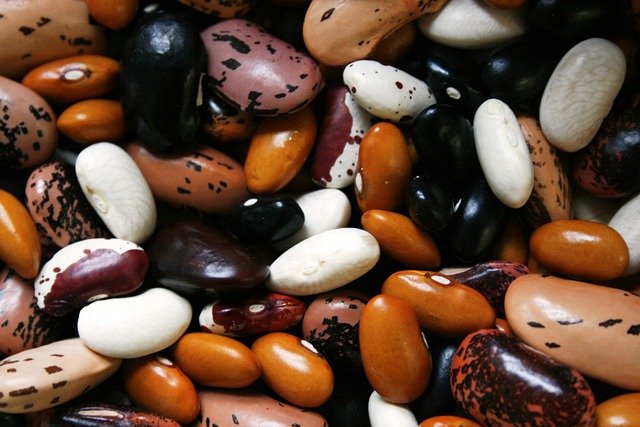Introduction: The Ultimate Guide on How to Eat 100 Grams of Protein a Day
Understanding how to incorporate 100 grams of protein into your daily diet can significantly impact your health, muscle development, and overall well-being. This guide offers detailed strategies and insights into achieving this nutritional goal with ease and efficiency.
Importance of Protein in Your Diet
Protein is essential for the repair and growth of tissues, hormone production, and as an energy source when carbohydrates are scarce. It’s pivotal for muscle maintenance, weight management, and immune function. Ensuring you consume adequate protein supports your body’s needs and can lead to improved health outcomes.
Choosing the Right Protein Sources
Selecting diverse and high-quality protein sources is crucial for nutritional balance and health. Include a mix of animal-based proteins such as poultry, fish, beef, and dairy products, along with plant-based options like beans, lentils, tofu, and quinoa to cover the spectrum of essential amino acids and nutrients.
Calculating Your Daily Protein Requirements
Your daily protein needs depend on various factors including age, sex, weight, and activity level. A general guideline is 0.8 to 1 gram of protein per kilogram of body weight for the average adult. Active individuals or those looking to build muscle may require more.
Breakfast Boost: Starting Your Day Right
Breakfast is an excellent opportunity to kickstart your protein intake. Options like a spinach and feta omelet, Greek yogurt with nuts and seeds, or protein pancakes can provide a substantial protein boost early in the day.
Snacking Smartly Throughout the Day
Healthy, protein-rich snacks are vital for meeting your daily goals. Consider almond butter on whole grain toast, a serving of cottage cheese, or a handful of mixed nuts to keep your energy up and contribute to your protein intake.
Optimal Protein Distribution: Maximizing Absorption
Distributing your protein intake evenly throughout the day can enhance muscle protein synthesis and nutrient absorption. Aim for at least 20-30 grams of protein at each meal to maintain energy levels and support muscle repair.
Balanced Meals: A Holistic Approach
Each meal should be a balance of carbohydrates, fats, and protein to ensure comprehensive nutrition. For instance, a lunch of grilled chicken, quinoa salad, and steamed vegetables offers a well-rounded, protein-rich meal.
Incorporating Protein Supplements
Protein powders, bars, and shakes can supplement dietary sources, especially for those with high protein requirements or limited time. They’re convenient and can help fill nutritional gaps.
Hydration and Protein: A Vital Connection
Proper hydration is essential when increasing protein intake. Water plays a key role in metabolizing protein and maintaining kidney health, so aim for at least 8 cups of fluids per day.
Protein Cooking Tips for Everyday Meals
Cooking methods like grilling, baking, or steaming can preserve the nutritional quality of protein sources. Get creative with herbs and spices to enhance flavor without adding excessive calories.
Overcoming Dietary Challenges
Adapting your diet to meet higher protein needs can be challenging, particularly for vegetarians or those with dietary restrictions. Explore diverse protein sources and consider consulting a nutritionist for personalized advice.
Tracking Your Protein Intake
Keeping a food diary or using a nutrition tracking app can help monitor your daily protein intake, ensuring you stay on target and adjust your eating habits as needed.
Final Thoughts on Achieving Your Protein Goals
Eating 100 grams of protein a day is attainable with careful planning and smart food choices. Embrace the variety and enjoy the journey towards a healthier, protein-rich diet.
FAQs About Eating 100 Grams of Protein a Day
Is it possible to eat too much protein?
While protein is essential, excessive intake can strain the kidneys over time, especially in individuals with pre-existing kidney issues. Balance and moderation are key.
Can plant-based diets provide enough protein?
Absolutely. Plant-based diets can offer ample protein through legumes, grains, nuts, and soy products. Diversifying sources is essential.
How do protein needs change with age?
As you age, protein needs generally increase to maintain muscle mass and strength, prevent sarcopenia, and support overall health.
What are some quick protein-rich meal ideas?
Meals like a turkey and avocado wrap, lentil soup, or a quinoa and black bean salad are nutritious, quick, and packed with protein.
Can hydration affect protein intake?
Yes, staying hydrated aids in protein metabolism and helps prevent potential side effects of high protein consumption, such as dehydration.
By integrating these strategies into your lifestyle, eating 100 grams of protein a day can become a seamless part of your routine, paving the way for improved health and vitality. For additional insights into combining nutritional strategies with wellness, explore the synergistic benefits of Stonehenge Health Dynamic Mushrooms, enhancing your approach to daily protein intake.

